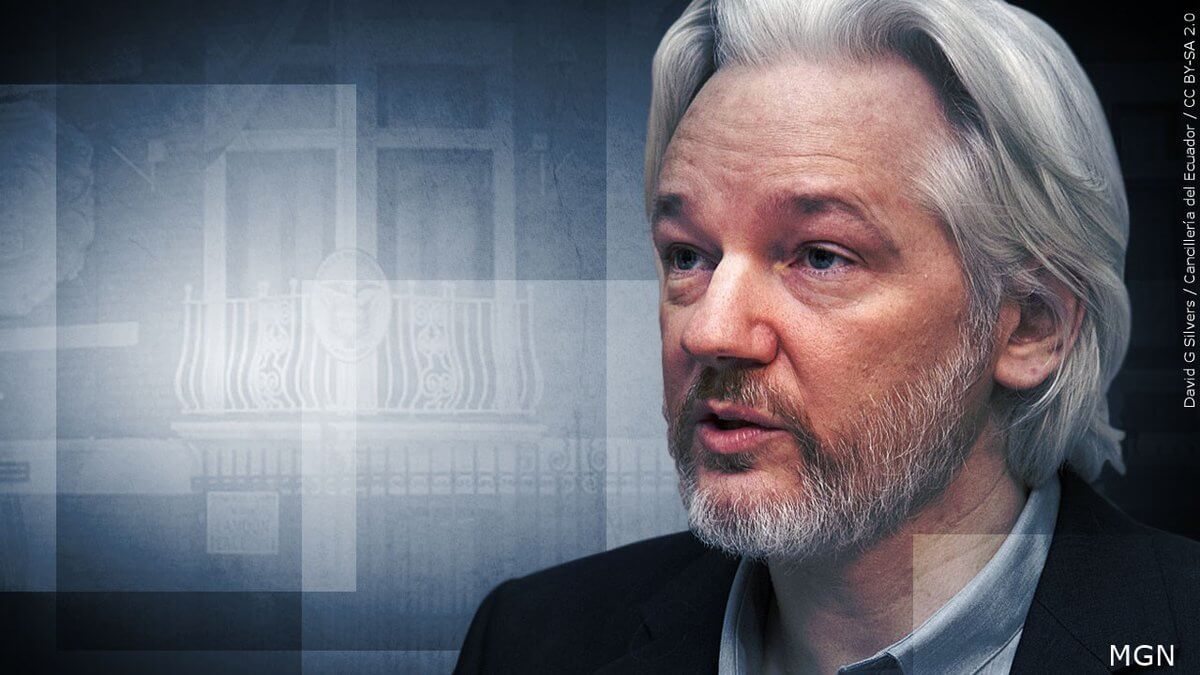WikiLeaks founder Julian Assange’s lawyers released a statement on Monday informing that on January 24, the United Kingdom’s (UK) Supreme Court denied him permission to appeal against the High Court’s order that allowed his extradition to the United States (US). If extradited, he will be tried under the US Espionage Act for 18 crimes that could result in a jail sentence of up to 175 years.
Also Read: Extraditing Julian Assange to the US Would Further Jeopardise Global Press Freedoms
In the petition, Assange’s lawyers argued that the US’ assurance of prison conditions was not presented to District Judge Vanessa Baraitser, who had refused the US’ original extradition application by warning that American prison conditions may lead to Assange taking his own life. Therefore, Assange’s legal team has argued that the Parliament-appointed District Judge could not “hear or test evidence” or take them into account while presenting her judgement on the extradition petition. Furthermore, his lawyers highlighted that the evidence of the US’ assurance should have been presented to her because she was “well versed” with the “surrounding evidence” of the case. However, the Supreme Court rejected the application, saying that it could not be heard as it failed to raise “an arguable point of law.”
Documents relating to the UK Supreme Court's decision refusing to hear #Assange appeal:
— WikiLeaks (@wikileaks) March 14, 2022
1. Assange application for permission to appeal to the UK Supreme Court:
Full application: https://t.co/vhlJKx7PFD pic.twitter.com/Ev5UyiS1nR
Responding to the decision, Assange’s lawyers stated that the WikiLeaks founder will now consider launching a final appeal against his extradition. They also asserted that a “separate process of appeal” needs to be initiated regarding the “other important issues he raised previously.”
Meanwhile, his lawyer in the US, Barry Pollack, said that the UK Supreme Court’s ruling was “extremely disappointing,” adding that it was regrettable that he faces criminal charges in the US courts for “publishing truthful and newsworthy information.”
Julian #Assange faces a 175 year sentence if extradited for revealing war crimes & human rights abuses including the #CollateralMurder gunning down of civilians, children and 2 @Reuters journalists #FreeAssangeNOW pic.twitter.com/DX0tgHjeiA https://t.co/ehmNE8bYQt
— WikiLeaks (@wikileaks) March 14, 2022
The decision is a major setback to Assange’s years-long bid to prevent his extradition to the US.
Following the latest news, Amnesty International called on the US government to “drop the charges” against Assange and urged the UK government to “release him immediately.” The statement also underlined the Yahoo! News report that said that the US was considering kidnapping or killing Assange while he was taking refuge in the Ecuadorian embassy in London.
Additionally, the rights organisation’s Secretary-General, Agnès Callamard, said that the US government’s assurances regarding Assange’s safety were “discredited by their admission that they reserve the right to reverse those guarantees.” She also raised concern that the US had not taken any action with respect to the atrocities pointed out in the WikiLeaks report, which she argued is proof that the charges against Assange were “a punitive measure” that threaten “media freedom and freedom of expression.” This sentiment was echoed by Amnesty’s Deputy Research Director for Europe, Julia Hall, who said that the US’ assurances were “inherently undeniable.”
Along the same lines, Reporters Without Borders released a statement saying that it was “deeply disappointed” with the decision. In addition, a coalition of American civil liberties groups, which includes the Freedom of Press Foundation, American Civil Liberties Union, and the Centre for Constitutional Rights, wrote a letter saying that Assange’s indictment “threatens press freedom.”
In 2006, Assange founded WikiLeaks, a platform through which he leaked several documents targetting political leaders, governments, and corporations from the US, Europe, China, Africa, and the Middle East. It first made headlines after releasing a manual for American guards at Guantánamo Bay in 2010 that exposed the atrocities committed in the prison.
In addition, the WikiLeaks founder is accused of conspiring with former US military intelligence analyst Chelsea Manning to leak classified material in 2010, with many of the 500,000 documents they released uncovering corruption and war crimes. Assange also leaked documents to journalists, particularly on the military operations of the Allied and American forces in Afghanistan and Iraq.
Fearing arrest following the massive leak, Assange fled to the Ecuadorian embassy in London in 2012 to avoid extradition and was subsequently granted asylum and then citizenship in January 2018. However, after right-wing leader Lenin Moreno was elected as Ecuador’s president, his citizenship was rescinded and his asylum status was revoked, following which he was arrested by British police.
The US government says that Assange’s whistleblower operation has endangered hundreds of lives. Consequently, the US set out to extradite him from the UK, which Assange opposed over concerns about the harsh American prison conditions. However, in December 2021, after the assurances by American authorities that Assange would not face severe treatment, the British High Court overturned a lower court’s decision and paved the way for his extradition to the US.
As a result of the Supreme Court’s refusal to hear the appeal, the case will return to District Judge Vanessa Baraitser, who will now assess other arguments made in the case. Thereafter, Home Secretary Priti Patel will decide on the extradition. If Patel approves the application, Assange can then present a judicial review petition against her decision in British courts and begin another round of appeals.

